Immigrants are essential: Hilary Pennington with Marielena Hincapié
Transcript
[Marielena Hincapié, a Latina woman with shoulder-length brown hair, wearing a red blouse, sits for a video conversation with Hilary Pennington, a white woman with short blonde hair, wearing a floral shirt.]
[on-screen text: Marielena Hincapié, Executive Director, National Immigration Law Center]
MARIELENA HINCAPIÉ: One of the lessons that I think we’ve learned from the pandemic is how interdependent we all are. Here in the US, immigrants are part of that essential workforce that we really believe need to be recognized by the law, as well. Our ability to eventually recover is going to depend on all of us recovering.
[on-screen graphic: Social Justice Leaders on What Matters, Hilary Pennington with Marielena Hincapié]
[on-screen text: Hilary Pennington, Executive Vice President of Programs, Ford Foundation]
HILARY PENNINGTON: I am speaking with Marielena Hincapié, the executive director of the National Immigration Law Center, the nation’s leading organization dedicated to defending and advancing the rights of low-income immigrants in the US. As an immigrant from Colombia, Marielena brings her lived experience to her work, as well as outstanding legal and strategic expertise and leadership. And I’m really, really eager to speak with you, Marielena.
MARIELENA: Great. Thank you, Hilary. Thank you so much for this invitation.
HILARY: Can you remind us what the goal of systemic immigration reform actually is?
MARIELENA: I think your question is really important because immigration, especially in these last four years, has been used as a weapon to divide our country. When, in fact, we are a nation of indigenous people, right? So, if you take the Native Americans and then you take people who are descendants of African slaves, everyone else is a descendant of an immigrant.
One of the lessons learned of the last 20, 25 years is that we actually need to help the country understand that immigrants are a valued political constituency, that everyone has that story, someone in their—either their own story or their family’s story—their family’s life or a loved one who has an immigrant background. It’s not that immigrants are a problem that need to be solved but instead that we need to be recognized for our humanity.
HILARY: Yes, 100%. Let’s come back to what might be the parameters of a better way of actually welcoming and supporting people who do immigrate here. Because what you just said made me think, even our policy prioritizing Dreamers as sympathetic cases is in some ways a trade-off. You know, a decision to start that may be strategic, may be necessary but can also be problematic. So I would love to hear your reflections on that.
MARIELENA: Yeah, that’s such an important question, Hilary. Because, in fact, you know, when we look at the moment that we’re living in, right, like, so much of that is about redefining who we are as America and who we are becoming as a nation and understanding that at the end of the day, we are all human beings. One of the lessons that I think we’ve learned from the pandemic is how interdependent we all are. Our ability to eventually recover is going to depend on all of us recovering.
Here in the US, immigrants are part of that essential workforce that we really believe need to be recognized by the law, as well. And so, yeah, I think the narrative change and the cultural change is going to be critical as a strategy for us to actually get to a place where all immigrants have an opportunity to really thrive in this nation.
HILARY: You called out the importance of recognizing that people who are immigrants are political constituencies. And I think, you know, people tend to oversimplify differences within the immigrant community itself, assuming all immigrants hold similar political views or should hold similar political views or that their, you know, their political views are dominated by one dimension of their identity—their status as immigrants. What does this get wrong? And how do you see that playing out right now?
MARIELENA: Yeah, when people are like, “Oh, the Latino—with Latino votes.” It’s like, no, it’s not monolithic, right? We’ve got many countries represented, many like—like anyone else, immigrants are also diverse. And, you know, one of the things that’s really interesting, Hilary, is that, unfortunately, for far too long immigration has been equated with Latinos, when in fact Latinos have many other interests and needs besides immigration. There is socioeconomic diversity, there is gender identity diversity, there is social conservatism among a lot of immigrants, as well.
And what’s interesting, that I think that we’re at a moment in our country where, as we look at finally, hopefully, getting to a place where we do recognize immigrants as a political constituency, there’s going to need to be some very hard work and organizing and advocacy done. So there’s an opportunity for us to ensure that immigrants are seen as a political constituency and for the different parties—whether it’s at the state level, at the federal level—to fight for that vote, right, to actually earn the vote of future American citizens, as well.
HILARY: So many people are outraged that the Trump administration separated migrant children from their families at the border. But even before Trump, you know, Democratic presidents were also ramping up deportations.
MARIELENA: Absolutely.
HILARY: What does it mean to treat people we turn away with dignity and respect?
MARIELENA: We need immigration reforms, and I would argue that we need them from the ground up, right? We need state and local policies that actually help improve the lives of low-income immigrants—and that’s access to health care, access to education, workers’ rights, etcetera, access to driver’s licenses.
It is just incredible that a country that so relies on immigrants for a whole host of reasons has allowed, right—and I would say that this is a failure in leadership at the congressional level—has allowed for such a large percentage of our society to be not only disenfranchised but on the margins of the law. And so we absolutely need to reform our laws and, you know, first and foremost, we need a legalization path, a path to citizenship for the, you know, close to 11 million members of our communities, right? The majority of undocumented immigrants in this country have been here for over a decade, right? They have US citizen children, they are small business owners, they are homeowners, they pay taxes.
There’s this myth of, like, “Why don’t people get in line?” Well, there is no line to get into, right? We can’t be a country of laws and not have the legal channels for people to be able to become a citizen.
Second is, we need to make sure that we restore due process to our system, right? That people who are coming to the United States seeking safety, right, who are fleeing persecution, violence in their home countries, including femicide, right? So many of the women and children who are leaving the Northern Triangle, who are fleeing the Northern Triangle, in Central America—so El Salvador, Guatemala, and Honduras— they’re leaving because of gender-based violence. And so we have to ensure and restore that ability, that due process, right, that people should apply for asylum and have immigration judges available to do that.
In the United States, since the Department of Homeland Security was created, since 2003, we have spent over $381 billion on interior and border enforcement—more than all federal law enforcement agencies combined. Yet we have not gotten legalization for the undocumented immigrants.
HILARY: Well, these are huge, huge issues—sort of, you know, invisible in plain sight, visible in plain sight, but not yet something the country is really, I don’t think, getting its head around. And, you know, when you talk about—you think about the resources that we spent, and those are resources that could be spent in other ways. And this is, I think, back to the points you were making about COVID. You know, what does it mean? What is safety, really, in a society—other than the ability for people to live lives of dignity? You could take the money that we are putting into law enforcement, in so many dimensions, and invest it in a different way. So, you know, I want to really thank you for those insights and also just, Marielena, how you lead. You know, it’s so, so important to—and exhausting, you know. It’s so important to get this country to turn the corner. Because you are right. This is about all of who we are, who we all are. So thank you so, so much.
MARIELENA: Thank you, Hilary. I’m so grateful for you. Thank you.
HILARY: Yes, and you. Be well.
MARIELENA: Gracias. You as well.
[on-screen text: What’s your take? Join the conversation]
[on-screen graphic: Ford Foundation logo]
Accessibility Statement
- All videos produced by the Ford Foundation since 2020 include captions and downloadable transcripts. For videos where visuals require additional understanding, we offer audio-described versions.
- We are continuing to make videos produced prior to 2020 accessible.
- Videos from third-party sources (those not produced by the Ford Foundation) may not have captions, accessible transcripts, or audio descriptions.
- To improve accessibility beyond our site, we’ve created a free video accessibility WordPress plug-in.
“One of the lessons that I think we’ve learned from the pandemic is how interdependent we all are. Our ability to, to eventually recover is going to depend on all of us recovering.”
Marielena Hincapié is the executive director of the National Immigration Law Center, one of the leading organizations in the US exclusively dedicated to defending and advancing the rights of immigrants with low income. She caught up with our vice president Hilary Pennington to discuss the vital role immigrants have as political constituencies, essential workers, and members of our communities.
Learn more about the National Immigration Law Center and their #ImmigrantsAreEssential campaign at www.nilc.org
Other videos in this series
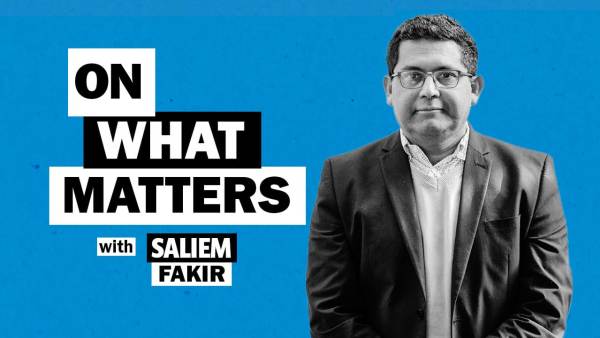
Working Towards a Truly Just Energy Transition with Hilary Pennington and Saliem Fakir
Saliem Fakir, the founder and executive director of the African Climate Foundation, the first grantmaking foundation in Africa focused on furthering solutions for sustainable climate development, joins Hilary Pennington to discuss the urgent need to address climate change and South Africa’s promising Just Energy Transition Partnership.
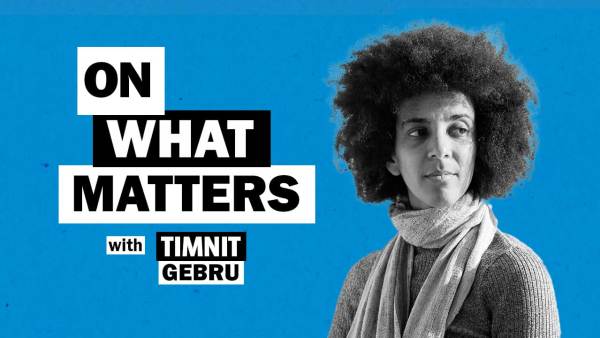
Making AI systems more just with Hilary Pennington and Dr. Timnit Gebru
Dr. Timnit Gebru, founder and executive director of the Distributed Artificial Intelligence Research Institute (DAIR), joins Hilary Pennington to discuss how an inclusive and collaborative approach to creating AI systems can address the uneven benefits and harmful impacts of technology on society.
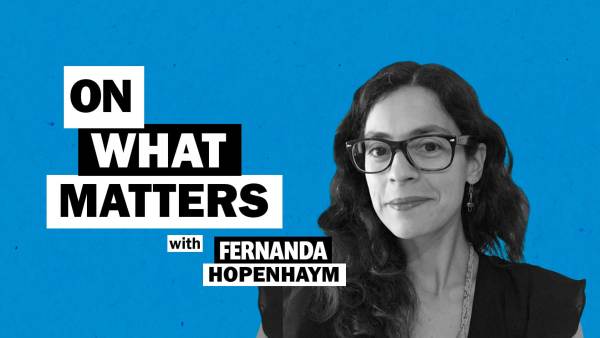
Holding corporations accountable with Hilary Pennington and Fernanda Hopenhaym
Fernanda Hopenhaym is the co-executive director of the Project on Organizing, Development, Education, and Research (PODER), a nonprofit in Latin America that pushes for corporate accountability for human rights and environmental abuses. Fernanda and Hilary discuss how to keep businesses ethical and transparent by using feminist and human rights organizing strategies.
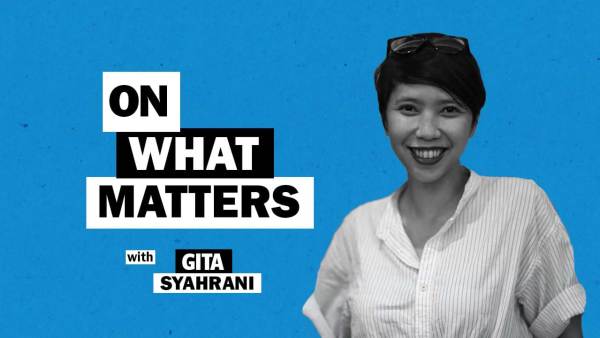
Saving forests while eradicating poverty with Hilary Pennington and Gita Syahrani
Hilary Pennington talks with Gita Syahrani about how engaging Indigenous and local communities in sustainability efforts can lead to greater economic mobility for them. Her work shows how civic engagement at the district level can have global impact.
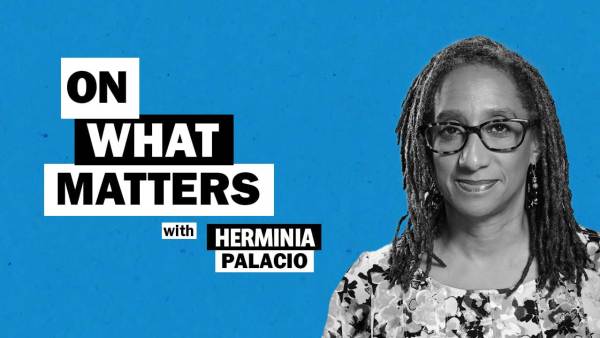
The future of reproductive justice with Hilary Pennington and Dr. Herminia Palacio
Hilary Pennington and Dr. Herminia Palacio discuss this moment in the reproductive justice movement, how different communities are impacted, and what the United States can learn from countries that have won gender and reproductive health victories.
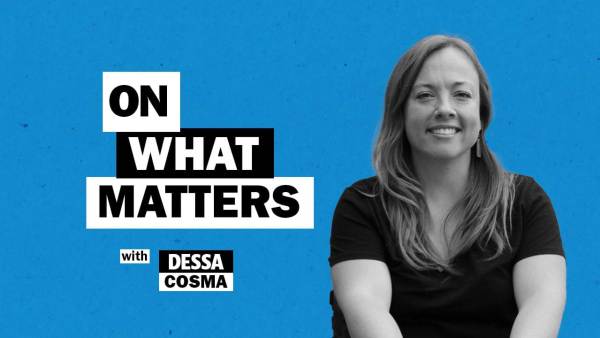
Reimagining how we think about disability with Hilary Pennington and Dessa Cosma
Hilary Pennington talks to Dessa Cosma about disability justice and inclusion. They discuss the importance of using intersectional approaches to activism and how to restructure the economy to be more just for disabled people.
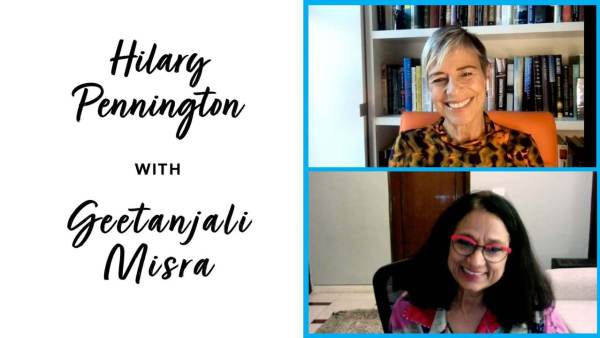
The future of feminism: Hilary Pennington with Geetanjali Misra
Geetanjali Misra has bore witness to the evolution of feminism both on the ground in the U.S. and India and in her work as an activist. Seeing patterns change and movements shift, she speaks about the importance of intersectionality in building a more inclusive feminist future.
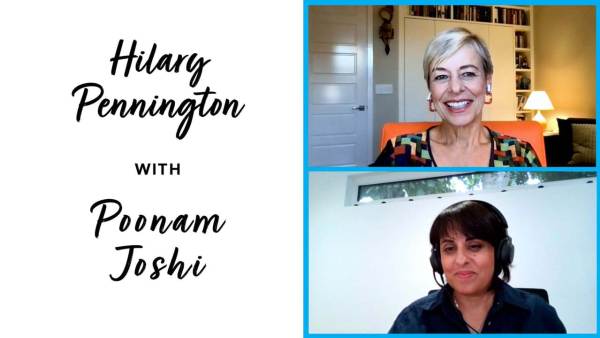
COVID’s impact on civic space: Hilary Pennington with Poonam Joshi
Civic space is essential for democracy. It allows people to participate in society and communicate freely and without discrimination. But, according to Poonam Joshi, director of Funders’ Initiative for Civil Society director, there are threats that need to be addressed before we solidify the civil society we want in the future.
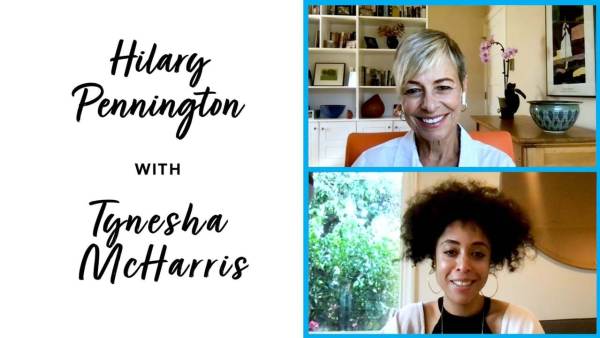
Funding Black feminism: Hilary Pennington with Tynesha McHarris
Black feminist movements are advancing social justice globally. Tynesha Harris, one of the founders of the Black Feminist Fund, aims to channel more support to movement leaders and create a model of true solidarity. Racial, gender, and class injustice need an intersectional approach that acknowledges the inherent value of Black women.

Philanthropy and environmental justice: Hilary Pennington with Laura García
When it comes to climate change, time is running out. But communities all over the world are working on solutions, and philanthropy needs to center their ideas and perspectives to win this fight. Laura Garcia, CEO of GlobalGreen Grants Fund, shares how funding grassroots movements can address challenges at the intersection of social and environmental justice.
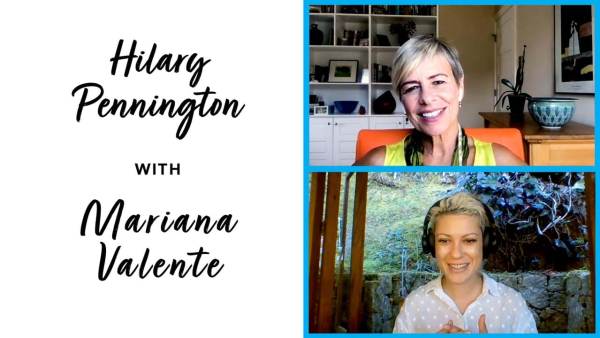
Technology and gender: Hilary Pennington with Mariana Valente
The internet is a force for good, but it must be guided by fundamental human and privacy rights and offer social protection, said InternetLab director Mariana Valente. In this way, technology can advance equality and, with the right policies in place, be used as a tool for advocates to organize.
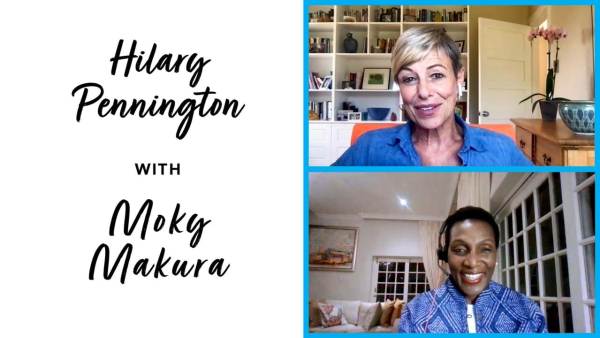
The power of storytelling: Hilary Pennington with Moky Makura
For too long, Africa has been defined in the media by stereotypes and oversimplified narratives. With Ford’s support, Africa No Filter is disrupting these narratives by empowering storytellers helping to create a nuanced, balanced view of the continent and an equitable, inclusive way of how to partner with it.
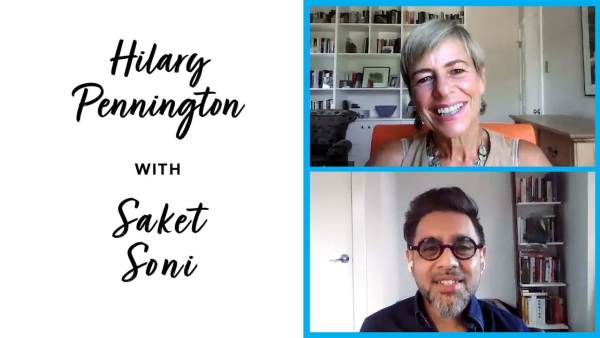
What essential workers need right now: Hilary Pennington with Saket Soni
Disasters present the opportunity to bring us together and give us the chance to reevaluate our priorities and ask what’s really important. Labor organizer Saket Soni sees COVID-19 as a prologue to other threats, like climate change. He says disaster responses need to focus on strengthening essential workers.
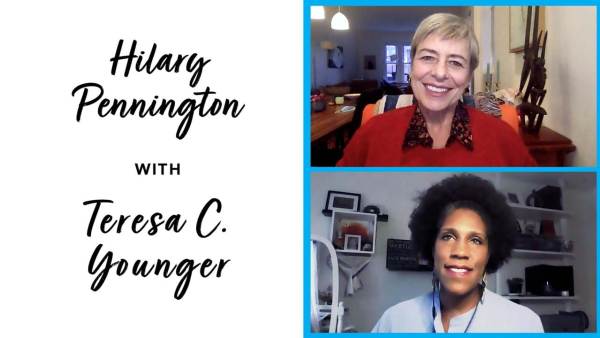
Philanthropy and Black women: Hilary Pennington with Teresa C. Younger
Social justice organizations led by women of color often receive less funding. Teresa C. Younger, CEO of the Ms. Foundation, explains why philanthropy needs to center women of color to address systemic racism and uplift women and girls of color for a more just future.
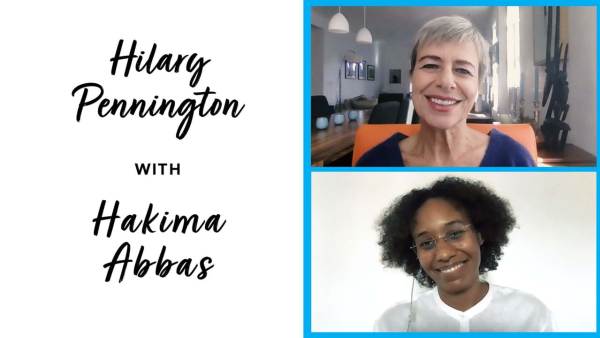
How young feminists are organizing: Hilary Pennington with Hakima Abbas
COVID-19 has impacted the way we work, but it also exacerbated gender inequality in the workplace. Hakima Abbas, of the Association for Women’s Rights in Development, believes we can prevent any further damage by including feminist leaders across the board in devising solutions.
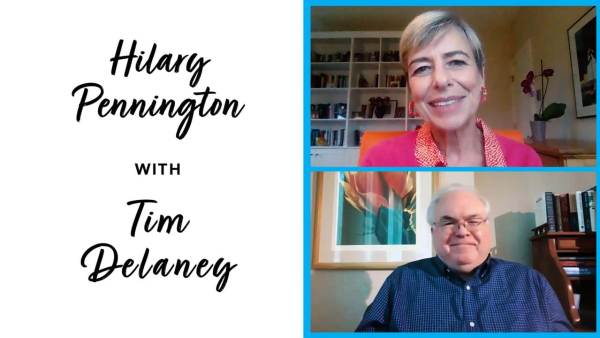
How nonprofits make an impact: Hilary Pennington with Tim Delaney
Over one million nonprofits exist in the United States, but Tim Delaney, the CEO of the National Council of Nonprofits, has an idea to make them even more impactful. To him, bringing social justice groups together can transform philanthropy for the benefit of all.
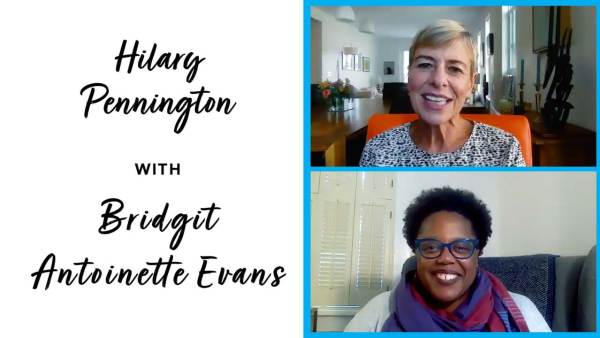
Social justice and pop culture: Hilary Pennington with Bridgit Antoinette Evans
Pop culture plays an important role in advancing social justice. Bridgit Evans of Pop Culture Collaborative produces cultural strategies that build on points of connection to ensure policy changes are not just symbolic. By finding commonalities through culture, she believes we can create a world where everyone feels they belong.
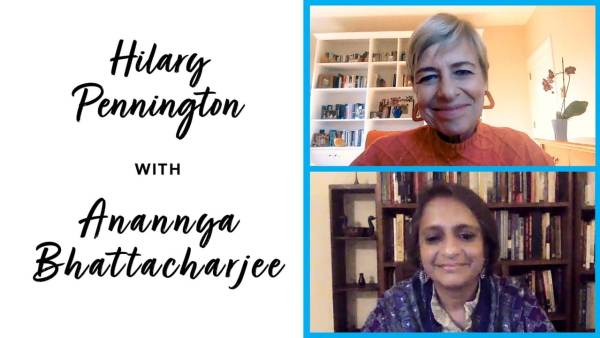
Global work needs to be local: Hilary Pennington with Anannya Bhattacharjee
While the labor movement has worked to improve the lives of garment factory workers globally, activist Anannya Bhattacharjee advocates that solutions need to start locally and come from the ground up to have a significant impact on workers’ lives.
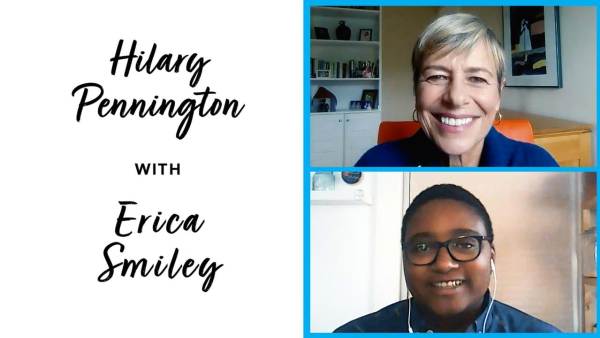
Essential workers are the economy: Hilary Pennington with Erica Smiley
The COVID-19 pandemic has dramatically changed the way we as a world work. As we face this inflection point, Erica Smiley, executive director of Jobs With Justice, believes people—especially essential workers—need to have the right to come together collectively to organize and negotiate their conditions to build a global economy that works for all.

The urgency of this social moment: Hilary Pennington with Eric Ward
We need to dismantle racism to make inclusive democracy truly possible. Eric Ward of Western States Center believes smaller movements can help support bigger waves of change. From creating cohorts of emerging leaders to encouraging small group interactions can help protect democracy and put an end to white supremacy.